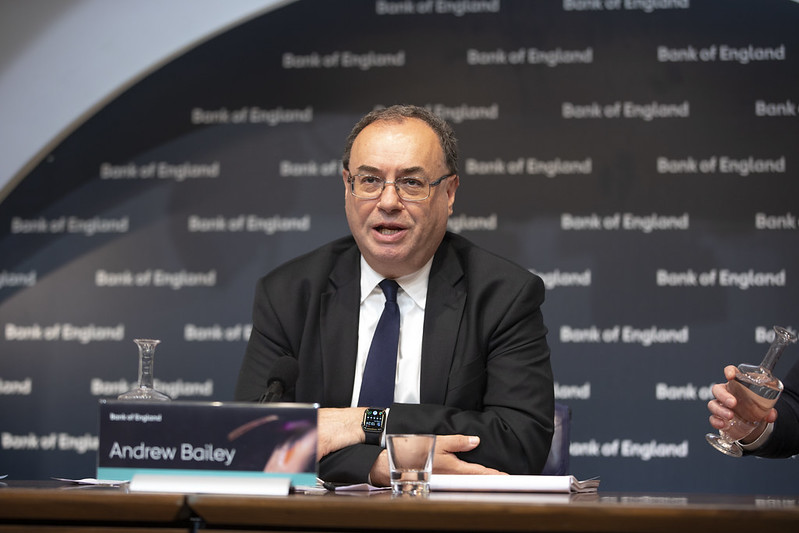The Bank of England is deliberately seeking to make households poorer and increase unemployment through its blunt, ineffective rate-rise policy.
David Spencer is Professor of Economics and Political Economy at the University of Leeds. Muhammad Ali Nasir is Associate Professor of Economics at the University of Leeds.
Cross-posted from The Conversation UK

The Bank of England (BoE) has raised interest rates once again to 5.25%, mirroring similar moves by the Federal Reserve and the European Central Bank. The fact that the UK is still suffering from high inflation – higher than either the US or eurozone – made another rate rise appear inevitable.
Yet there are reasons to doubt the merits and effectiveness of this approach. The UK’s efforts to bring down inflation quickly could be risking the health of the economy.
It is important to understand how monetary policy “works”. In effect, the BoE is seeking to make households in particular poorer so they spend less. The idea is you dampen down demand to bring it into line with supply, so that upward pressure on prices can be curbed.
The other effect of raising rates is to reduce the wage demands of workers by creating unemployment. This is not the publicly stated goal, but it lies behind the rhetoric of wage restraint that the BoE continually espouses – despite nominal wage growth only recently matching inflation.
The current approach to monetary policy accepts a recession as a price worth paying, while implying a belief that higher unemployment leads to lower inflation. This can be disputed on economic grounds – in the UK in the recent past, low inflation was achieved with low unemployment, so the idea that there is a necessary trade-off between inflation and unemployment can be refuted historically.
There are also moral objections to current monetary policy. It can be argued that the BoE should have a responsibility to protect living standards, not harm them. Its mandate of achieving a 2% inflation target should not be at any cost. Creating unemployment will impose misery on many workers and have scarring effects on the economy, from lost skills to reduced industrial capacity, which may be difficult to heal.
The economic reality
The current inflation is also not a classic case of “too much money chasing too few goods”. There are pressures from higher food and energy prices linked to factors like Brexit and the Ukraine war that cannot be controlled by raising interest rates.
There are also structural problems in the UK, such as labour shortages due to increases in economic inactivity – the result of more over-50s leaving the workforce and rises in ill health. These problems are seen to have put upward pressure on wages, and require responses beyond raising interest rates if they are to be fully addressed.
For example, they require new investment in the health sector to help alleviate hospital waiting lists. A better-funded NHS would create a healthier workforce, overcoming current limits on labour supply due to poor health that are seen to be creating inflationary pressures.
In any case, inflation is set to come down – the BoE’s own forecasts show this. Monetary tightening at this stage is therefore short-sighted and probably counterproductive – especially when the BoE thinks deflation is distinctly possible in the next couple of years. A more cautious approach to monetary policy seems in order.
Other countries have followed different policies with different effects. Spain, for instance, has used mechanisms such as price controls on things like rents and energy to help curb inflation (the UK did also cap energy bills, though not as aggressively). This has helped to reduce inflation while keeping employment high. It shows that crashing the economy is not the only route to low inflation.
In short, the BoE is simply compounding problems rather than solving them through its actions. It is time it learnt the limits of its own policies, while the government needs to play a role too.
In the short term, attention should be given to controlling prices (including energy) and making businesses show restraint in their pricing behaviour. Longer term, greater investment in skills, health and productive capacity is needed to create an economy that allows for rising real living standards with full employment.
Thanks to many generous donors BRAVE NEW EUROPE will be able to continue its work for the rest of 2023 in a reduced form. What we need is a long term solution. So please consider making a monthly recurring donation. It need not be a vast amount as it accumulates in the course of the year. To donate please go HERE.


Be the first to comment